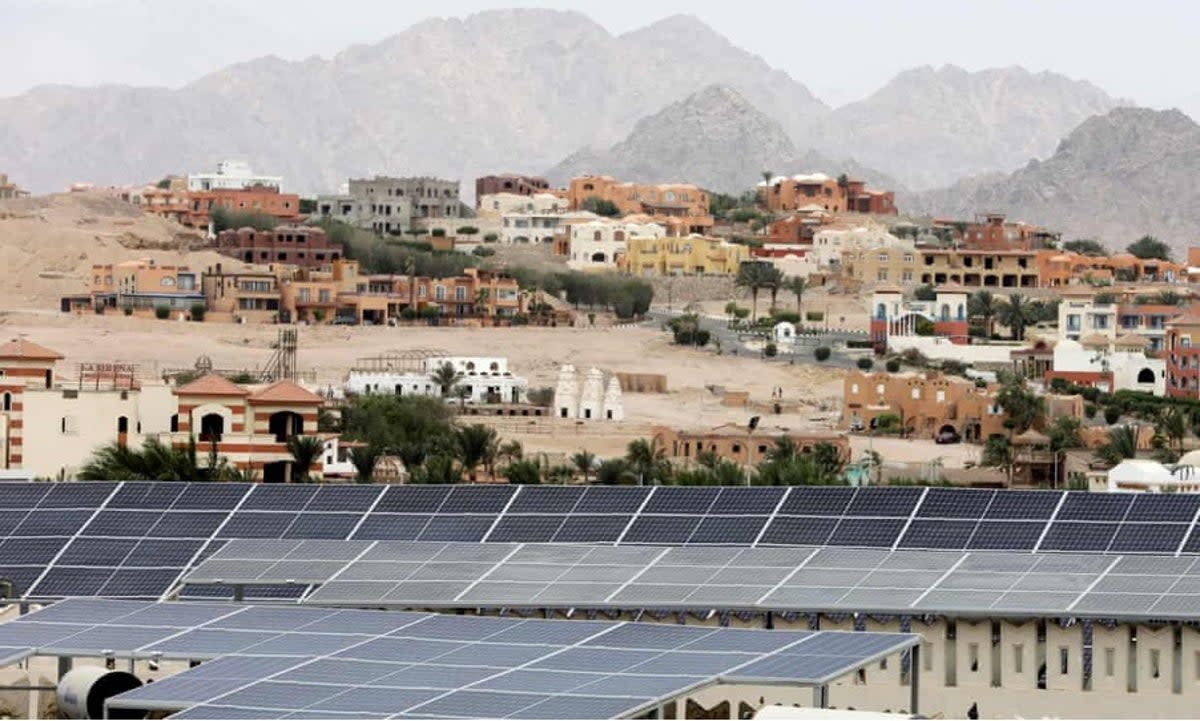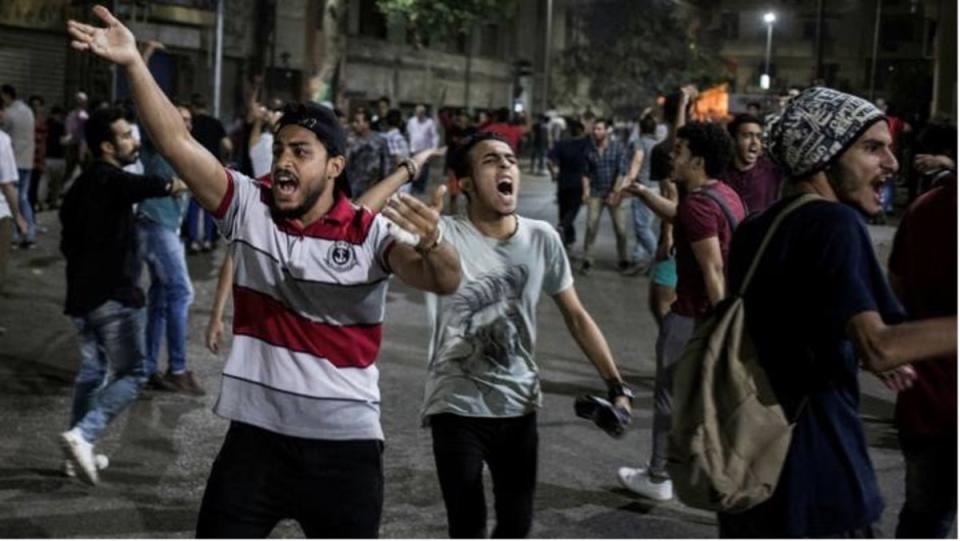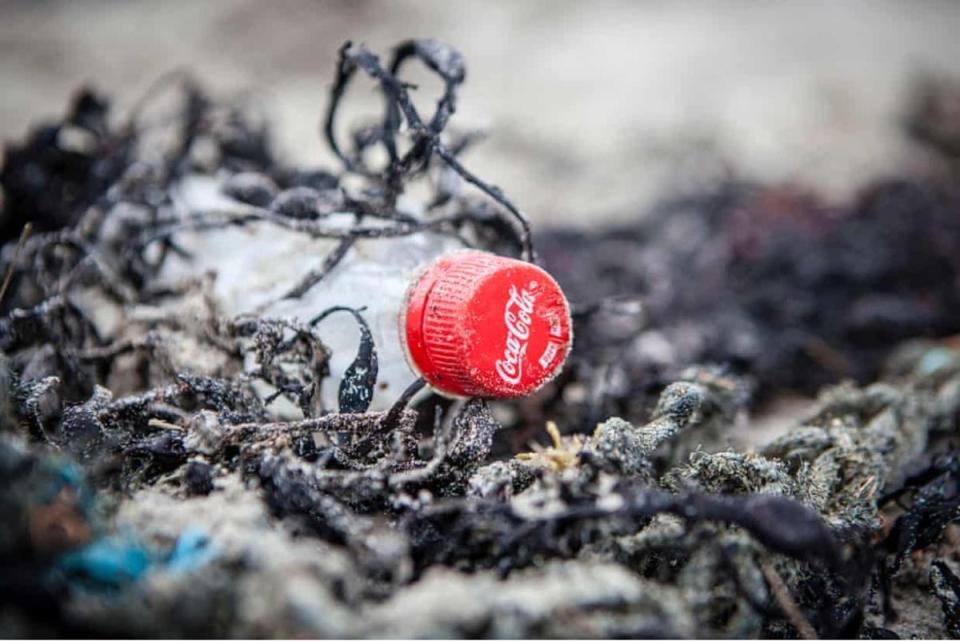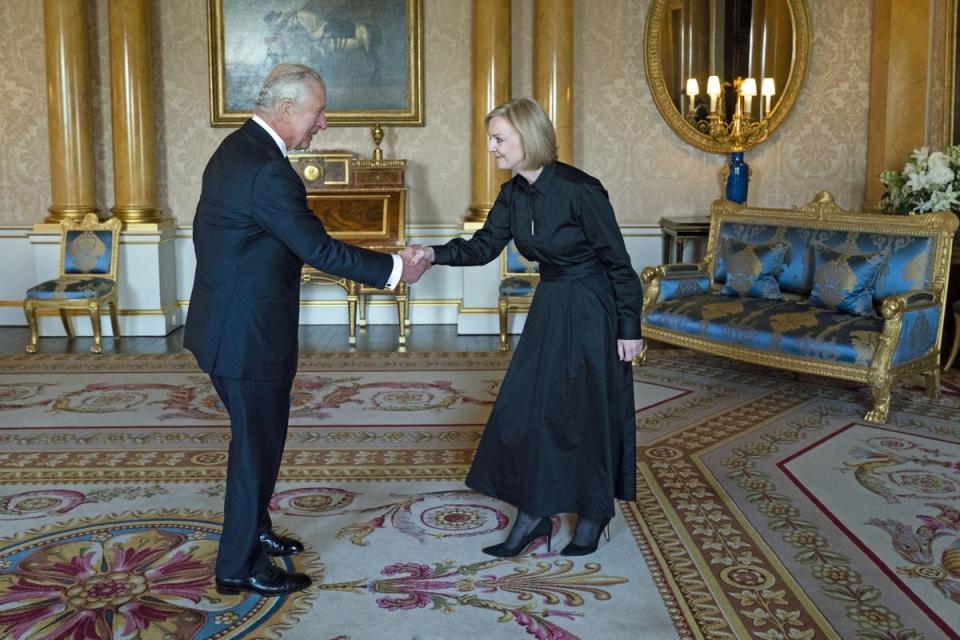‘Greenwashing’, LGBTQ+ ‘torture’, and human rights abuses: why COP27 is proving controversial

Amid escalating concerns about the global energy crisis, food security, and widespread flooding, this year’s COP27 climate talks are being heralded as the most crucial yet.
However, with just one month to go, the summit, set to take place in Egypt, is also already set to be the most controversial.
Activists have expressed alarm over the decision for Egypt to host the UN conference, due to the country’s poor record on human and LGBTQ+ rights.
Author Naomi Klein and Green Party MP Caroline Lucas are among those who have signed a letter detailing their concerns, and demanding that the Egyptian authorities free thousands of political prisoners.
Signatories have drawn particular attention to the case of the jailed British-Egyptian activist Alaa Abd El Fattah, who has been on hunger strike for more than six months inside a desert prison north of Cairo.
Abd El Fattah has spent much of the past decade behind bars, notably in 2014, for organising demonstrations against a law effectively banning protests.
This week, a sponsorship deal between COP27 and Coca-Cola, which has been described as the “world’s top polluter” by an environmental group, has also come under fire, branded as “greenwashing” by campaigners.
COP27, to be held in the Egyptian coastal resort of Sharm el-Sheikh from November 6 to 18, is the world’s primary forum for governments, businesses, and environmental organisations to tackle the climate emergency.
Egypt is in the ‘throes of a human rights crisis’

In July of this year, a group of environmentalists and activists, including MP Lucas, signed a letter expressing alarm over Egypt’s ability to host COP27 successfully because of its poor record on human rights, as thousands of prisoners of conscience remain behind bars.
“We are deeply concerned that [a successful conference] will not be possible due to the repressive actions of the Egyptian government,” they said. “Indeed, it seems more likely at this point that the conference will be used to whitewash human rights abuses in the country.”
It follows a report from Amnesty International which said Egypt was in the throes of a “human rights crisis”.
Human Rights Watch (HRW) has said Egypt has severely curtailed the work of environmental groups. Officials in Cairo said the report was “misleading”.
ââWhile Egypt has pledged to allow protests at the summit, albeit in an area separate from the talks, Egyptian activists have increasingly expressed fears that demonstrators and civil society will not be safe if they protest.
They are calling for their country to open civic space and free political prisoners before hosting the COP27 summit.
Since coming to power in a military coup in 2013, Egypt’s president, Abdel-Fattah al-Sisi, has overseen a broad crackdown on human rights, targeting all potential political opposition, domestic and foreign media, and civil society.
The Arabic Network for Human Rights Information estimates there are at least 65,000 political prisoners in Egypt’s jails.
Activists told the BBC earlier this month that they are routinely intimidated and that new laws mean it is practically impossible for many civil society groups to function.
The case of the jailed British-Egyptian activist Alaa Abd El Fattah has sparked particular outrage. Last year, the activist, who is considered one of the figureheads of Egypt’s 2011 revolution, was sentenced to a further five years on terrorism charges for sharing a social media post about torture in a detention centre.
More than 100 international non-governmental organisations (NGOs) have already signed a petition organised by the Egyptian Human Rights Coalition, which consists of 12 groups.
“We emphasise that effective climate action is not possible without open civic space,” a petition launched by the coalition says. “As host of COP27, Egypt risks compromising the success of the summit if it does not urgently address ongoing arbitrary restrictions on civil society.”
Fears about ‘LGBTQ+ torture’

While same-sex relationships are not explicitly banned in Egypt, the country’s security forces have used laws designed to protect against public “debauchery” to harass, arrest, imprison, and even torture LGBTQ people, according to human rights groups.
According to Human Rights Watch, Egyptian security forces arbitrarily arrest and detain people based on their sexual orientation or gender identity, and subject them to torture and ill-treatment in detention, including forced anal examinations.
Around 95 per cent of Egyptians believe that homosexuality should not be accepted by society, according to 2013 survey.
In July of this year, a White House adviser and his partner called on the UN to move the summit from Egypt due to the country’s treatment of LGBTQ+ people, citing fears that they and other activists would be targeted by security forces if they attend the talks.
The couple, Jerome Foster and Elijah Mckenzie-Jackson, wrote to the executive secretary of the United Nations Framework Convention on Climate Change (UNFCCC), to condemn the choice of Egypt as host of COP27 due to its “LGBTQ+ torture, woman slaughter, and civil-rights suppression”, and that the decision “places our life in danger in the process of advocating for the life of our planet”.
Some have said the UNFCCC need to move the conference or risk failing to uphold its own stated values, which include prohibition of any discriminatory behaviour against people for their sexual orientation or gender identity at any event held by the body.
‘Greenwashing’ Coca-Cola sponsorship

After a sponsorship deal between Coca-Cola – named the “world’s top polluter” – and COP27 was announced last month, climate activists accused the company of “greenwashing”.
More than 5,000 people have now signed a petition calling for the decision to be reversed.
The company admitted in 2019 that it uses three million tonnes of plastic packaging in a year.
In 2021, an audit from Break Free From Plastic named Coca-Cola as the world’s number one plastic polluter.
Emma Priestland, a co-ordinator for Break Free From Plastic, a global alliance of organisations and individuals, said: “Coca-Cola sponsoring the Cop27 is pure ‘greenwash’. Coca-Cola is one of the world’s biggest users of plastic.
“It’s astounding that a company so tied to the fossil-fuel industry is allowed to sponsor such a vital climate meeting.”
Coca-Cola said it “shares the goal of eliminating waste and appreciates efforts to raise awareness”.
Did Liz Truss tell King Charles not to attend the summit?

Buckingham Palace has confirmed that King Charles will not be attending COP27, responding to a story in the Sunday Times which claimed Prime Minister Liz Truss had “ordered” the King not to attend.
The Palace said advice had been sought by the King and given by Truss, and that the idea the King was uncomfortable was not the case.
“With mutual friendship and respect there was agreement that the King would not attend,” the Palace stated.
Before his accession to the throne last month, the King — then the Prince of Wales — had indicated he would attend the annual conference.
At last year’s climate summit in Glasgow, then Prince Charles, an outspoken and passionate advocate for climate action, gave a key address at the opening ceremony urging world leaders to adopt a “war-like footing” to rescue the planet.
Mark Spencer, the new minister for fisheries and farming, said William should go instead as the King now has “other priorities”.

 Yahoo News
Yahoo News 
